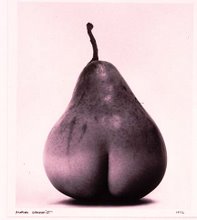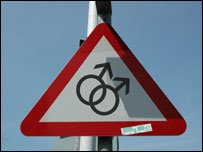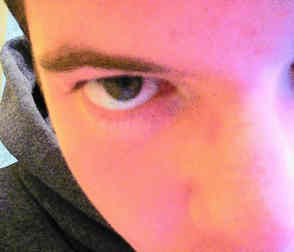

Surprisingly, we may not all be going to hell in a handbasket; so to speak.
Yes indeedy, America, already the most religious post-industrial nation, according to the Baylor University sociology department, is experiencing an up-swing in religion - dare I say, a minor revival of sorts.
Although the statistics on G-d are a bit skewed toward the Gentiles among us, it's interesting to note the opinions on Big-Guy's personality. Although I'm somewhere between "Benevolent" and "Critical", the majority of my fellow Americans believe in an authoritarian creator.
Interestingly, scholars have been saying for some time that the relevance of denomination is decreasing. But the Baylor survey, which asks about such subjects as God's "personality" and what people pray about, adds to a debate about what that means. It reveals the complex ways Americans describe their religiosity, and the minefield for today's scholars in trying to measure it. Is someone religious if they attend church? If they believe in God? If they identify with a particular religious group? What if they do one but not the others? Which gets more weight?
One has to wonder, however, where this leaves atheists - having known quite a few myself. From a telephone sampling of more than 2,000 households, university researchers at the University of Minnesota’s department of sociology, found that Americans rate atheists below Muslims, recent immigrants, gays and lesbians and other minority groups in “sharing their vision of American society.” Atheists are also the minority group most Americans are least willing to allow their children to marry.
Indeed, atheists are truely the ultimate outsider. In the course of the past three decades increasing social acceptance - atheists have been left out. One could attribute this to atheism's identification with communism. However, we often see that as society changes and once outcasts are accepted; they are ultimately identified as having some common core. In America, this core is religion-based values. Of which atheists, perhaps unfairly, are identified as lacking this kind-of moral core. Dr. Edgell, an associate sociology professor and the lead researcher in the project, said that Atheists "play the role that Catholics, Jews and communists have played in the past" in that we provide "a symbolic moral boundary to membership in American society."
Researchers also tried to discover any correlations between negative attitudes toward Atheists and similar views of homosexuals and Muslims. "None of these correlations is large," reported the researchers. "We believe this indicates that the boundary being draw vis-a-vis atheists is symbolic, a way of defining cultural membership in American life, and not the result of a simple irrational unwillingness to tolerate small out-groups."





No comments:
Post a Comment